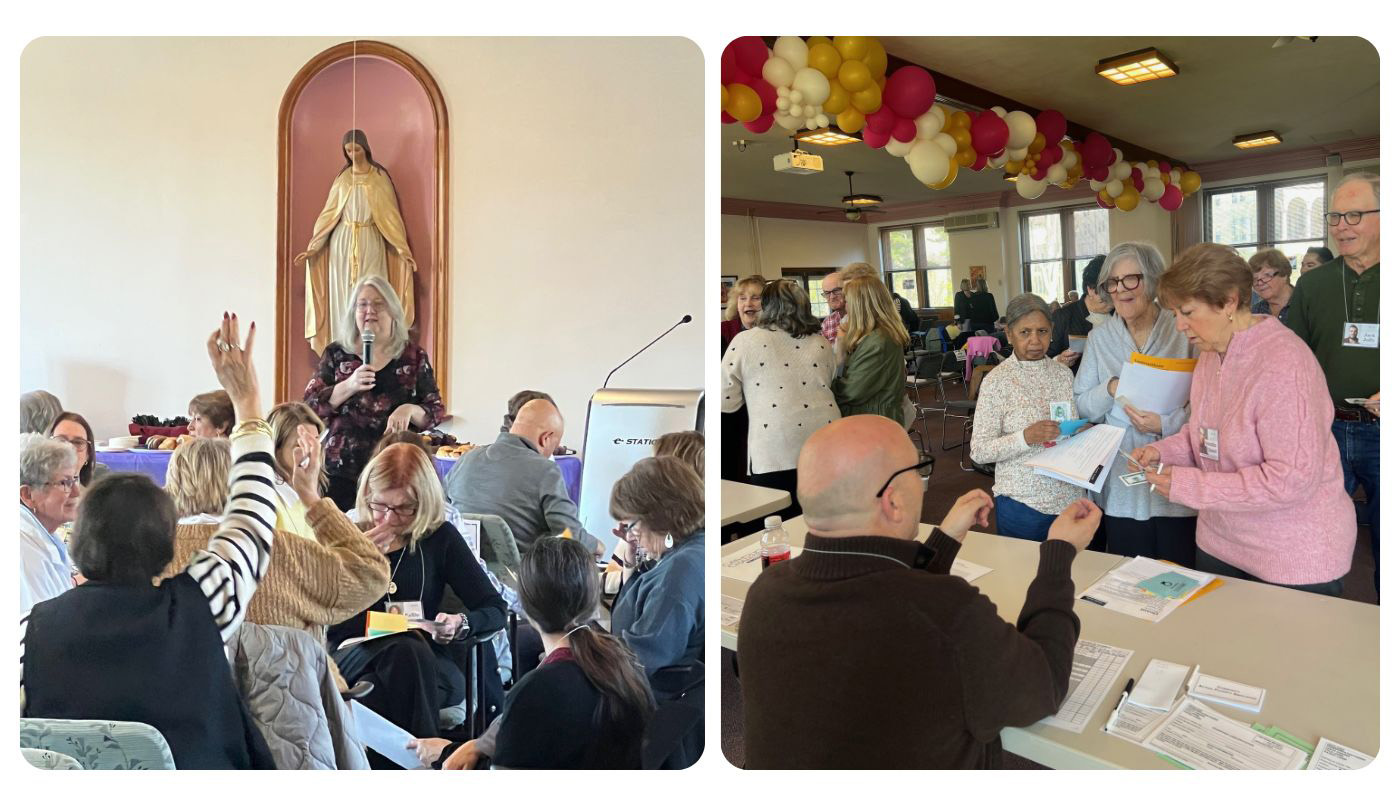Poverty Simulation Shows Obstacles the Poor Face
 Catholic Charities of Long Island presented a Poverty Simulation involving nearly 100 people taking roles as low-income family members and vendors in the community they encountered during a typical month in a fast-moving and frenetic environment that, at times, tried the patience of both groups.
Catholic Charities of Long Island presented a Poverty Simulation involving nearly 100 people taking roles as low-income family members and vendors in the community they encountered during a typical month in a fast-moving and frenetic environment that, at times, tried the patience of both groups.
It was the second time Catholic Charities offered the Poverty Simulation, the first being in October 2023. The simulation, properly known as the Missouri Community Action Network Poverty Simulation, was jointly sponsored by Catholic Health and the Sisters of St. Joseph of Brentwood, which hosted the April 8 morning session on their campus.
Mary Iapalucci, CCLI’s Suffolk County Parish Social Ministry developer, explained that the Long Island Community Foundation says that 5.9 percent of Long Islanders, or 166,000 people, live below the federal poverty line. The figure, she said, doesn’t fully account for the complexity of poverty on Long Island, where many families have incomes above the poverty line that fail to meet the high cost of living here.
At the outset, participants portraying low-income families were given descriptions of each member and forms of identification as well as their sources of income and possessions and their expenses. They had 10 minutes to study the information before beginning the monthlong simulation, which was compressed into four 15-minutes weeks divided by five-minute weekends.
Vendors, featuring many Catholic Charities staff members, ranged from a banker to a supermarket manager to a child care worker to DSS case managers and a receptionist, as well as a mortgage and rent collector, utility company representatives, a pawn shop broker, a community health center physician, a school official, a police officer and others.
As Iapalucci explained, the simulation is based on real-life situations. Teenagers may wander away with friends, not sit at home, as parents may have hoped. A young child who has not eaten may not do as they are told or even throw a tantrum. Adults facing poverty day after day may become desperate. A curveball tossed into the monthly agenda was that school was not in session for Week 3, necessitating child care responsibilities during the day.
Another complexity for families was initially presenting transportation cards for public transportation or fuel charges before any of their daily business could be conducted. If they were more than three minutes late arriving for work, they would not be paid for the day.
Messages were delivered in matter-of-fact terms. Overturned chairs with Evicted signs greeted the four families put out of their homes during the simulation. A holiday closing the Department of Social Services visibly exasperated one participant who had traveled there to no avail.
Iapalucci and Nassau County PSM developer Elizabeth Ramirez and PSM director Paula Malloy were joined on the event committee by Linda Reich, the CARES program coordinator; and Patricia Callahan, CCLI’s volunteer coordinator.
Reich led participants in an energetic recap of their simulation experiences, asking many questions probing how they were treated and how they felt about it. More than one respondent addressed how children in the families fared. One woman who acted the part of a 9-year-old said she spent most of her time in juvenile hall, causing her to wonder, “Do they (her family) even care about me?” Another said, “My heart is breaking for kids treated as we were this morning.”
Terri Zenobio, director of Vincentian services for the Society of St. Vincent de Paul in Bethpage, said it felt “great” to have 14 members collaborating, including many who volunteer in parish conferences.
“It helps people to feel the frustrations and some of the issues to making ends meet,” she said. “Those feelings are the most meaningful part of the experience.”
Zenobio was struck by the many family members she encountered in her role as a community banker who tried to barter on their loan payments or to see how much they could borrow on their paychecks. The proceedings demonstrated “intangible things” we don’t really know about or consider, such as long lines, and rules and their exceptions, where bureaucracy can impede people from receiving help, she said.